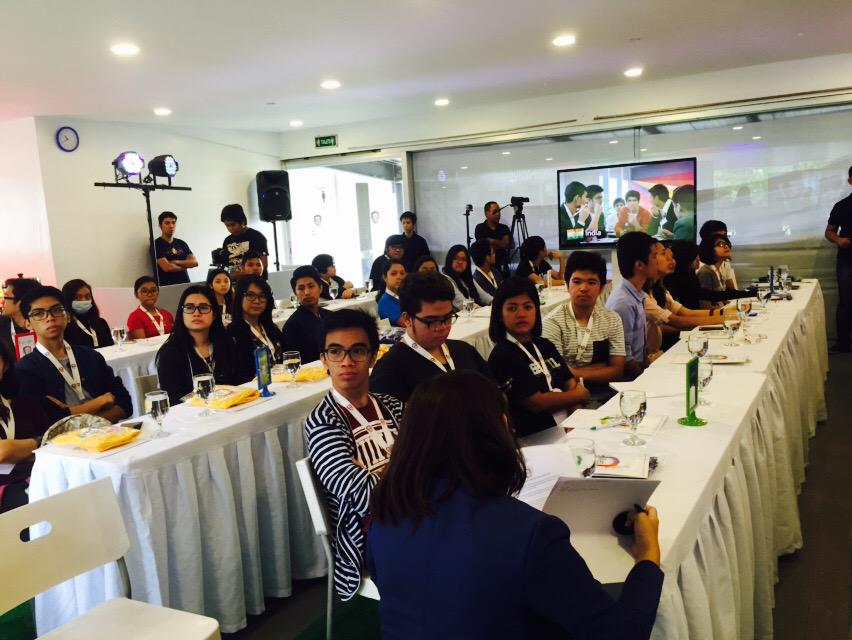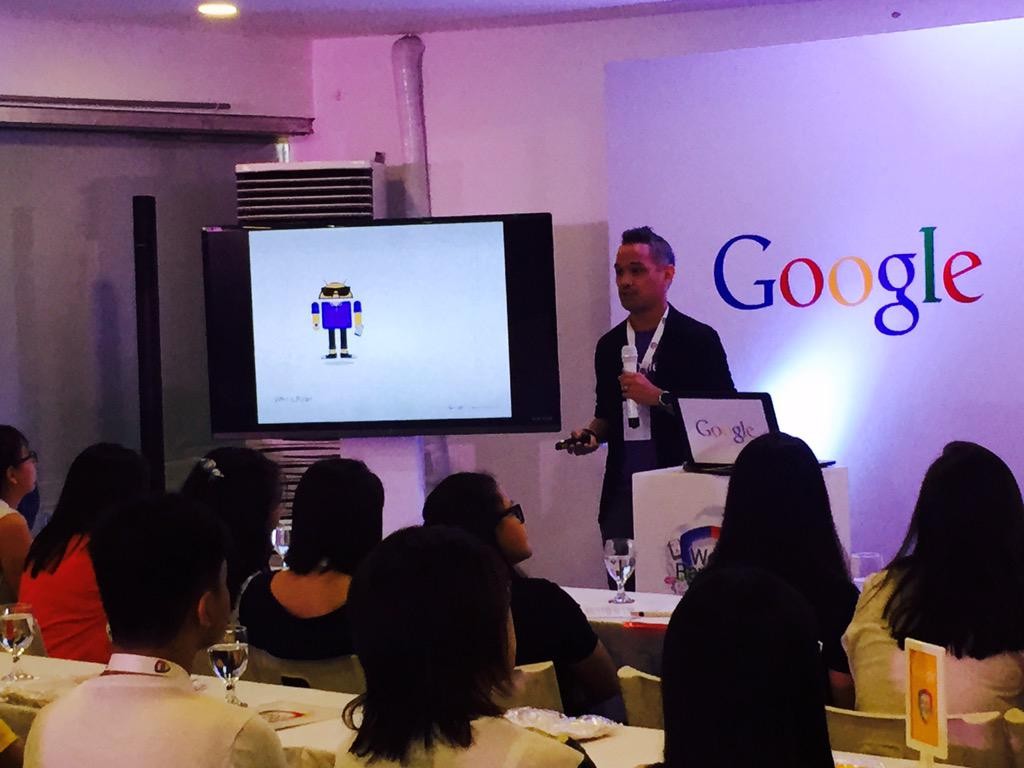Youth tapped as vanguards vs cyberbullying

Participants listen to speakers during Google’s Web Rangers workshop, a campaign on online safety and security, in Taguig City on Saturday. PHOTOS BY YUJI GONZALES
Technology advances, and so does bullying.
With the rapid rise of social media, bullying has taken on a new but equally detrimental form—just a click away and right in front of computer screens, sometimes even in the comforts of home where one should feel secure.
That is why in this digital age, one should not underestimate the power of words, the Internet and, most especially, the digital-savvy Filipino youth.
This is the message of Google’s first “Web Rangers” workshop in the country, a campaign on online safety and security, held at Fort Bonifacio in Taguig City on Saturday.
Saying that six out of 10 Filipino youths use social networking sites, commissioner Earl Saavedra of the National Youth Commission underscored the sector’s potential in promoting responsible Internet usage and curbing cyberbullying.
“We cannot primarily dismiss the fact that the youth is into technology these days. It defines us. It gives meaning to our generation. It emphasizes our identity,” he said. “Believe that so much is in your hands.”
Calling young people as today’s online vanguards, Saavedra said the youth should maximize their digital literacy and skills not only for the sake of leisure and entertainment but also to ensure a safe online environment “for the common good of all.”
“There is a greater reason that should envelop our ideas as to why we are so good at Internet,” he said. “It is good to ask ourselves what is trending now online. If you see that cyberbullying is indeed the trend, then go against the current.”
“Marami na pong nabiktima. Tama na, sobra na, at ang pinakaimportante, itama na,” he added.
Helena Lersch, head of Google’s public policy and government relations in the Philippines, reminded the youth to be more cautious of what they were sharing online and its possible impact to others.
“What you share in social media says a lot about you, but it also says a lot about others. What you share can take a whole life on its own. Just make sure you know what you are sharing and to whom you share it with,” she said, noting the importance of privacy settings.

Google Philippines country marketing manager Ryan Morales talks about creativity in crafting campaigns vs cyberbullying.
Google Philippines country marketing manager Ryan Morales urged the participants to craft an online campaign against cyberbullying that would “make a difference” by “thinking about things in an entirely different way.”
“Be locally relevant, be in the moment, be bigger than ourselves,” he said.
Citing data that showed the Philippines as the 14th country in the world with the highest number of Internet users and the fastest growing smartphone market, Morales said the Filipino youth should “foster the positive aspects of our culture” by building on its socially participative nature.
Stressing the importance of authenticity, advertising executive and comic book writer Budjette Tan linked his experiences in storytelling in coming up with an effective online campaign.
“Tell a good story that people will like and share and spread,” he said. “We are burdened to tell an old story (bullying) in a new way.”
Carlo Ople, managing director of advertising firm DM9-Digit, emphasized that campaigns against cyberbullying should not be retaliatory in nature, as it would only magnify the problem and would turn bullied victims to bullies themselves.
DM9JaymeSyfu chief creative officer Merlee Jayme, meanwhile, said a genuine cause and original ideas were the ingredients of an effective campaign.
“Continue having a curious mind because it will get you somewhere—troubled, and something noble,” she said.
The participants, who were divided into 13 teams of five members each, were given three weeks to produce a digital campaign against cyberbullying. The winning group will get a chance to present their output to Google Asia executives.